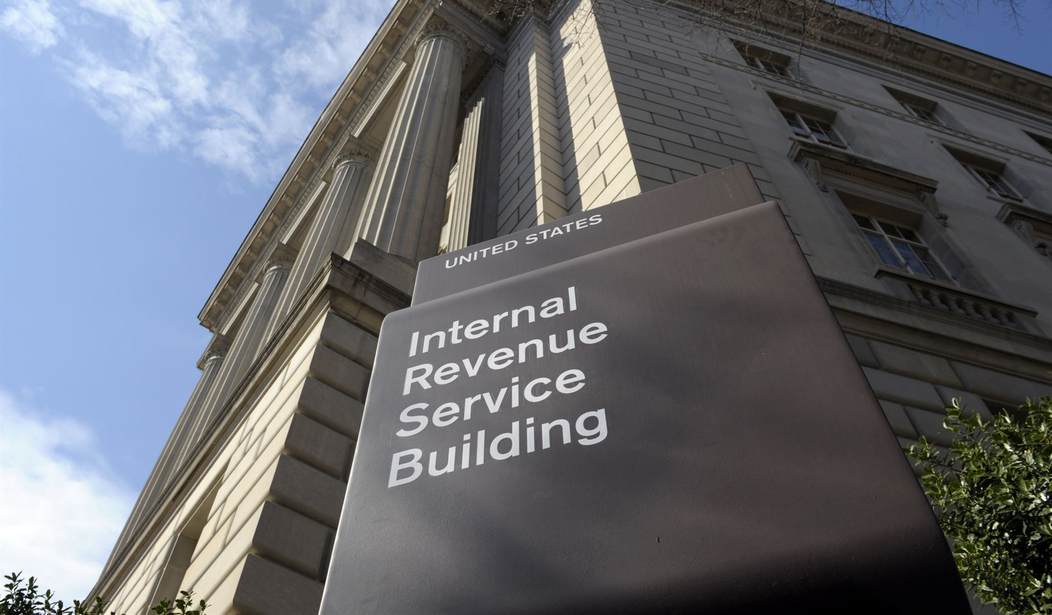The Congressional Budget Office issued an interesting report on what increasing spending on the IRS would do to increase government tax revenue.
The CBO’s estimate was nearly 40 percent below the estimate being used to score Joe Biden’s mammoth $3.5 trillion spending bill.
Biden has been bragging about how his climate-change-reducing/Medicare-boosting/racism-ending/budget-destroying bill would be near “revenue neutral.” Would that it were. No one’s exactly sure how much debt will be added as a result of the Build Back Better bill, but if the CBO is right, Biden’s banking on the IRS catching enough tax cheats to put a dent in the federal budget deficit caused by his $3.5 trillion spending spree in later years— in other words, pie-in-the-sky budgeting.
Biden intends to increase the IRS budget by $80 billion dollars and is estimating that that increase will bring in an additional $700 billion. How many Pinocchios can Biden get for that one?
Spending would increase in each year between 2021 and 2031, though the highest growth would occur in the first few years. By 2031, CBO projects, the proposal would make the IRS’s budget more than 90 percent larger than it is in CBO’s July 2021 baseline projections and would more than double the IRS’s staffing. Of the $80 billion, CBO estimates, about $60 billion would be for enforcement and related operations support.
NRO’s Dominic Pino summarizes the effect on Biden’s estimates: “In other words, roughly doubling the size of the IRS would raise, on average, $12 billion per year for the next ten years.”
That’s what $80 billion a year more for the IRS buys us.
The CBO has no illusions about the cleverness of Americans to avoid paying what the IRS says they must pay.
First, CBO expects the IRS to prioritize the enforcement activities that it thinks will have the highest average return; additional enforcement spending would therefore have lower returns than previous spending. Second, CBO expects taxpayers to adapt to the IRS’s enforcement activities and adopt new ways of evading detection, so an enforcement activity may have a lower return in later years.
It’s the law of diminishing returns: the more we spend on the IRS, the less we collect.
This isn’t the first time that the Biden administration has used funny accounting to come up with numbers on budget bills that misled. They did the same thing in scoring the bipartisan infrastructure deal.
The Congressional Budget Office (CBO) has released its cost estimate of the bipartisan infrastructure deal. The CBO, like the Committee for a Responsible Federal Budget two days ago, found that only about half of the $550 billion in new spending is paid for by the legislation.
Does it really matter to anyone? We’re not talking about “real” money — not until the government separates the citizen from his hard-earned cash. That’s the only real calculus in this game of decimal points, mirages, and digital shadows.
The normal mind cannot fathom a trillion dollars. We know that it’s a thousand million dollars. But how much is a million? Many of us will never make a million dollars in our entire lifetime, and yet the government wants to spend that unimaginable amount a thousand times. For what?
No wonder liberals don’t think anything of spending a trillion, two trillion, three trillion dollars. They deny its reality. It doesn’t come from anywhere — certainly not tax revenue, even from the “rich.” It’s created in the compassionate and morally correct mind of a leftist. What could go wrong?
Our grandchildren and great-grandchildren will curse our names for all time unless we begin to address this monumental problem of debt.










Join the conversation as a VIP Member